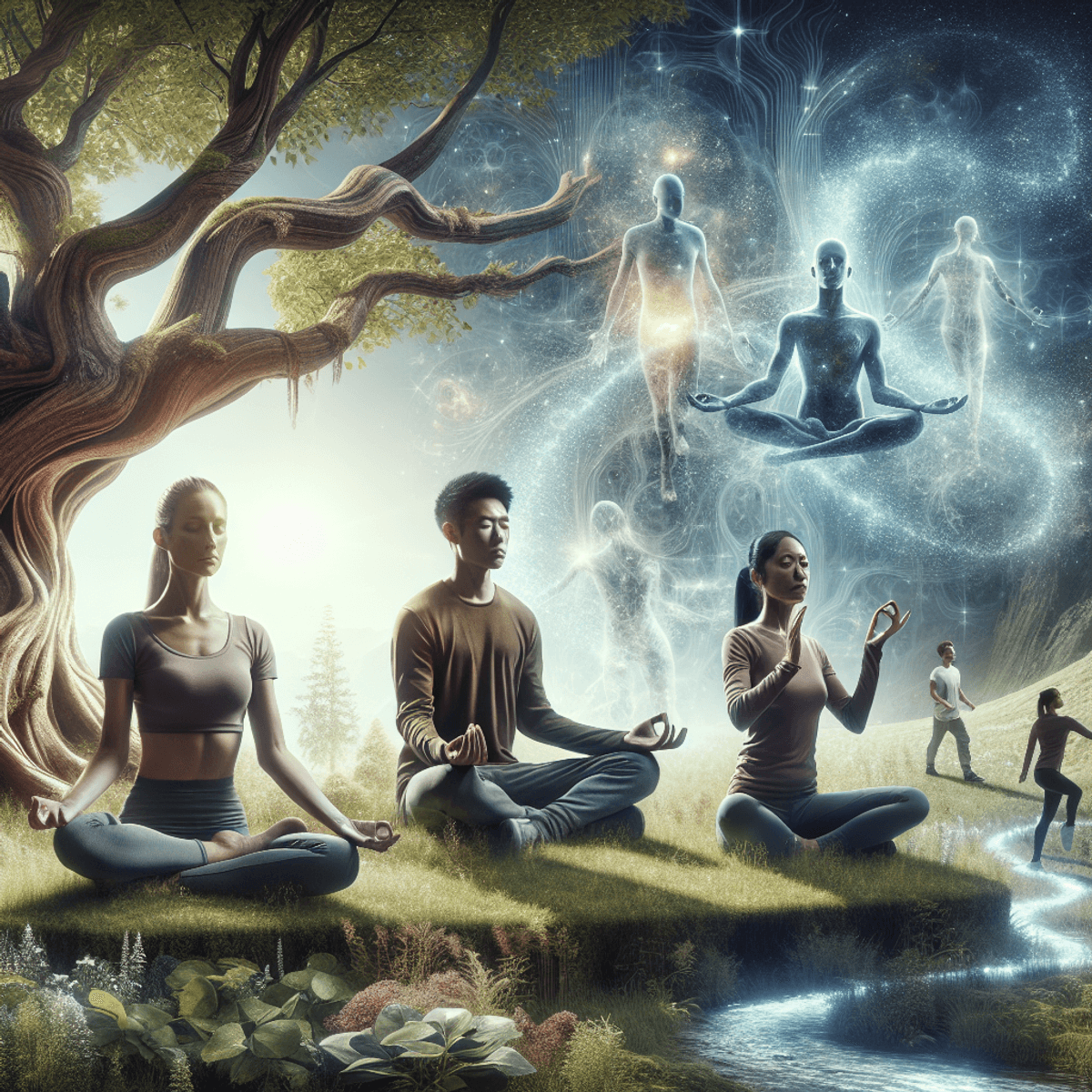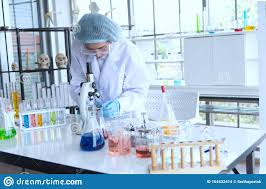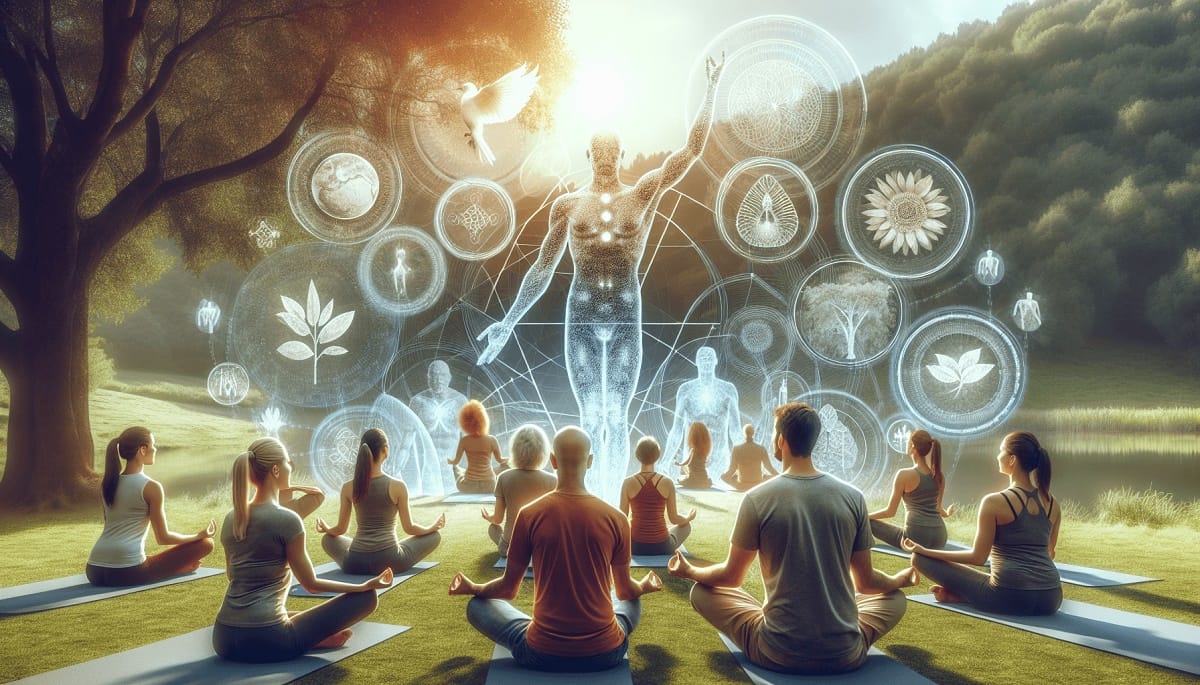Services
Age Restoration Reversing Life
Disha Arogya Dham Age Restoration (Reversing Life)
Introduction
Age Restoration (Reversing Life) refers to the scientific and holistic approaches aimed at reversing the biological processes associated with aging. This concept holds significant value as it addresses the quest for prolonged youthfulness and vitality.Age Restoration is a topic that has gained significant attention and interest in recent years.
With advancements in medical technology and our growing understanding of the mechanisms behind aging, researchers and scientists have begun to explore various strategies to reverse the effects of time on our bodies. From regenerative medicine to lifestyle interventions, the field of Age Restoration offers a promising glimpse into a future where we can not only extend our lifespan, but also enjoy a higher quality of life in our later years.
Ayurvedic Approaches
Ancient Ayurvedic texts such as Charak Samhita offer insights into age restoration through herbal formulations and rejuvenation therapies. These traditional practices, rooted in natural healing methods, emphasize the importance of balancing the body’s doshas and promoting overall well-being.
Ayurvedic approaches to age restoration include the use of rasayanas (rejuvenating herbs), Panchakarma (detoxification therapies), and specific dietary and lifestyle modifications. While modern scientific research is still underway to validate these claims, many individuals have reported positive results in terms of improved vitality and overall health through Ayurvedic interventions.
Regenerative Medicine
In recent years, regenerative medicine has emerged as a promising field within Age Restoration. Stem cell therapy, for example, holds immense potential in rejuvenating damaged tissues and organs. By harnessing the regenerative properties of stem cells, scientists aim to reverse age-related degeneration and restore youthful function in various parts of the body. Although still in its infancy, this field shows great promise for future advancements in Age Restoration.
Lifestyle Interventions
While medical interventions play a crucial role in Age Restoration, lifestyle factors cannot be overlooked. Simple yet impactful changes like maintaining a balanced diet, engaging in regular physical activity, managing stress levels, and prioritizing quality sleep can go a long way in slowing down the aging process. These lifestyle interventions not only promote healthy aging but also contribute to overall well-being.
Conclusion
Age Restoration is an exciting and evolving field that offers hope for a healthier and more vibrant future. Whether through ancient wisdom or cutting-edge science, the pursuit of reversing life’s clock has captivated human imagination for centuries. As research continues to deepen our understanding of aging mechanisms and strategies to combat them, we may find ourselves on the brink of a new era where age truly becomes just a number.”
Modern Research
Current studies focus on key biological processes like mitochondrial dysfunction and epigenetic changes, which are pivotal in the aging process.
Key Takeaway: By integrating ancient wisdom with contemporary science, we can develop innovative strategies to restore youthfulness at a cellular level.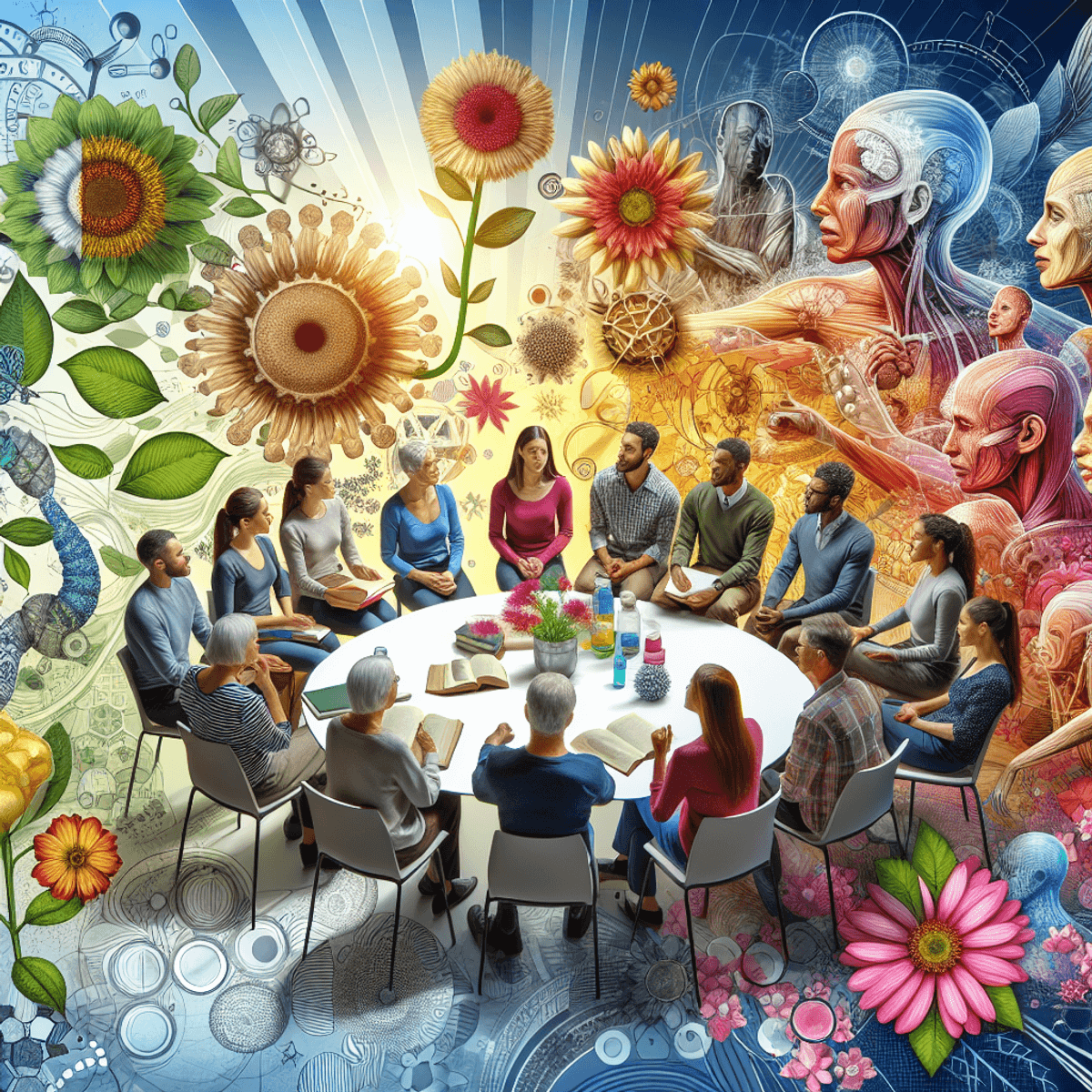
Understanding the Science Behind Aging
Age restoration is based on understanding the basic biological processes that drive aging. Two key factors in this are problems with mitochondria and changes in gene expression.
Mitochondrial Health
Mitochondria are the powerhouses of our cells, responsible for energy production. As we age, mitochondrial function declines, leading to reduced cellular energy and vitality. This decline in mitochondrial health is a hallmark of aging and contributes to various age-associated conditions.
Key Points:
- Energy Production: Healthy mitochondria are essential for converting nutrients into adenosine triphosphate (ATP), the energy currency of cells.
- Mitochondrial Dysfunction: Aging impairs mitochondrial efficiency, causing an increase in reactive oxygen species (ROS) that damage cellular components.
- Interventions: Mitochondrial-targeted compounds like SS-31 have shown promise in animal studies by improving heart function and reducing oxidative stress.
Epigenetics and Aging
Epigenetics involves changes in gene expression without altering the DNA sequence. These changes can be influenced by various factors, including environment, lifestyle, and aging. As we age, the loss of epigenetic information can lead to decreased cellular function and increased susceptibility to diseases.
Key Points:
- Epigenomic Stability: Maintaining stable epigenetic marks is crucial for preserving healthy cellular functions.
- Role in Aging: Age-related epigenetic alterations can disrupt normal gene function, contributing to aging and age-related diseases.
- Potential Interventions: Strategies to enhance epigenomic stability include dietary modifications, lifestyle changes, and pharmacological agents that target epigenetic pathways.
Understanding these processes provides a foundation for developing age restoration strategies. By focusing on maintaining mitochondrial health and restoring epigenomic integrity, it becomes possible to address the root causes of aging at a cellular level. Further research into age-related mitochondrial dysfunction could unveil more insights into effective interventions for age restoration.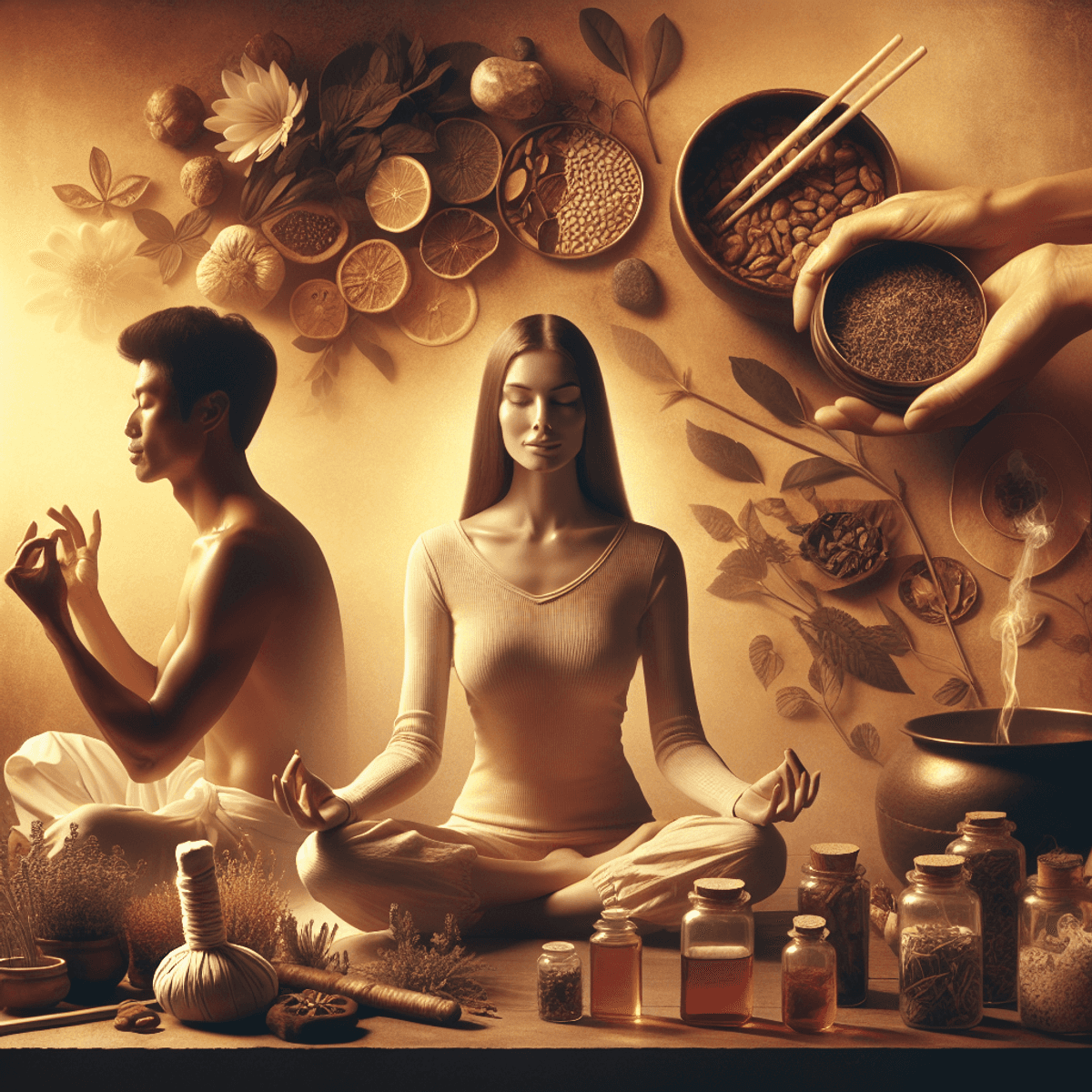
Ayurvedic Approaches to Rejuvenation
Ayurveda, an ancient system of medicine from India, offers profound insights into age restoration. Rooted in texts like the Charak Samhita, Ayurveda emphasizes balance and natural therapies for maintaining health and youthfulness. Acharya Charak, one of the principal contributors to Ayurvedic literature, articulated various methods and principles aimed at rejuvenation.
Central to these teachings is the concept of Rasayan Therapy. Rasayan, derived from Sanskrit, means “path of essence” and refers to a branch of Ayurveda focused on rejuvenation and longevity. This therapy aims to enhance vitality, improve immunity, and slow down the aging process through a combination of lifestyle changes, dietary recommendations, and herbal formulations.
Key Components of Rasayan Therapy
1. Herbs:
- Ashwagandha (Withania somnifera): Known for its adaptogenic properties, Ashwagandha helps reduce stress and improve energy levels.
- Amla (Emblica officinalis): Rich in Vitamin C, Amla supports immune function and acts as a powerful antioxidant.
- Guduchi (Tinospora cordifolia): Enhances immune response and detoxification processes.
2. Formulations:
- Chyawanprash: A traditional herbal jam made with Amla and other potent herbs aimed at boosting overall health.
- Brahma Rasayan: A herbal concoction designed to nourish brain functions and enhance longevity.
3. Dietary Practices:
- Emphasis on fresh, organic foods that are easy to digest.
- Inclusion of spices like turmeric and ginger known for their anti-inflammatory properties.
4. Lifestyle Changes:
- Regular practice of yoga and meditation to maintain mental peace.
- Incorporation of daily routines (Dinacharya) such as oil massage (Abhyanga) for improved circulation.
Disha Arogya Dham, a renowned Ayurvedic center, exemplifies the practical application of these principles. They offer tailored Rasayan therapy sessions that integrate personalized diet plans, yoga routines, and specific herbal treatments based on individual needs.
By combining these time-tested practices with modern insights into biological aging processes, Ayurveda provides a holistic approach to rejuvenation. This rich tradition holds potential for complementing scientific advancements in age restoration, offering a well-rounded strategy for achieving longevity and vitality.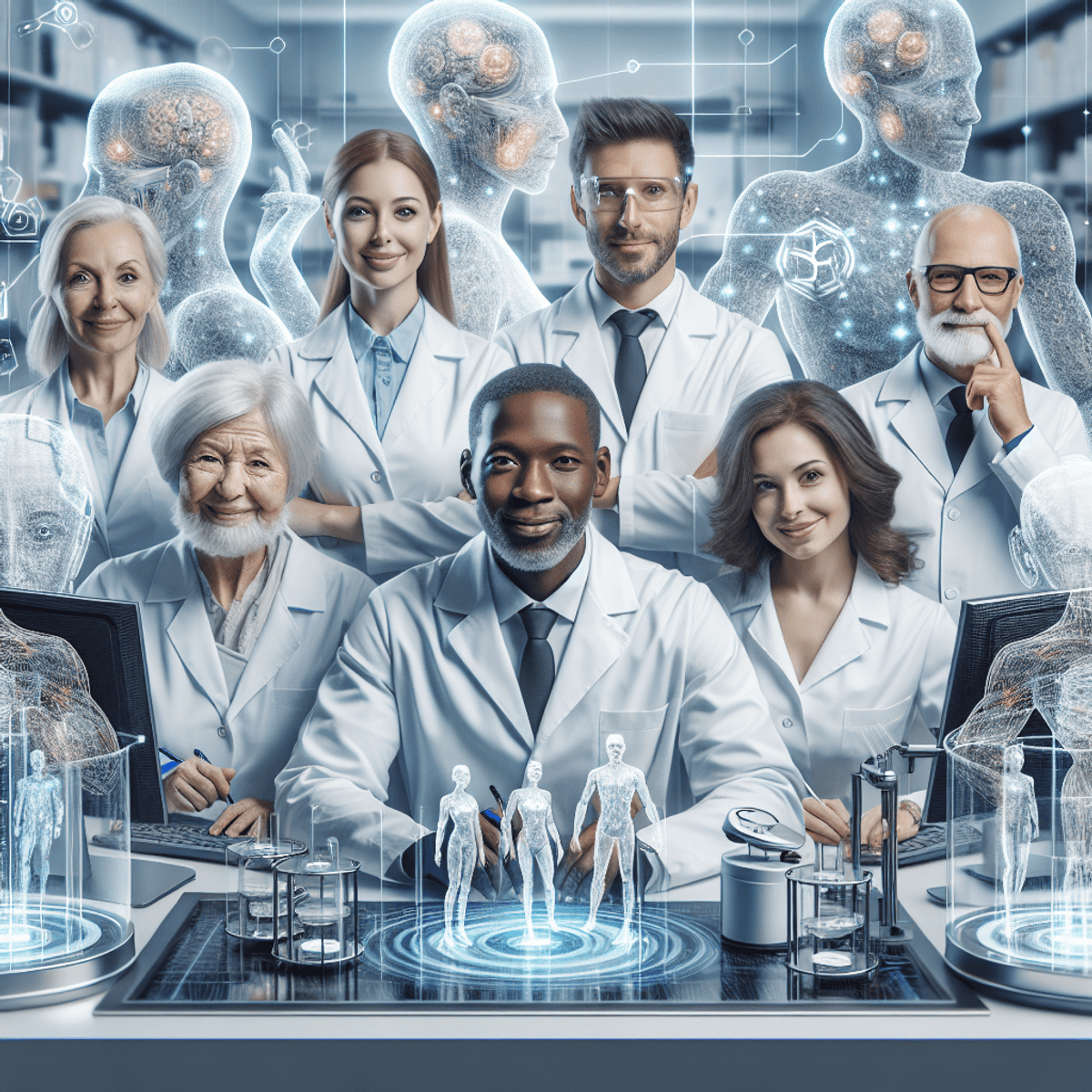
Modern Research on Age Restoration Techniques
Recent studies on age restoration focus on the delicate balance between building up and breaking down processes in our bodies. Building up processes involve creating complex molecules from simpler ones, which is essential for growth and repair. On the other hand, breaking down processes involve breaking complex molecules into simpler ones, releasing energy needed for cellular activities. As we get older, this balance can become disrupted, leading to various age-related conditions.
Balancing Building Up and Breaking Down Processes
Maintaining a balance between building up and breaking down metabolism is crucial for healthy aging. Anabolic resistance, where the body’s ability to build muscle decreases with age, contributes to sarcopenia—a condition characterized by muscle loss and weakness. Interventions aimed at enhancing building up pathways, such as resistance training and dietary supplementation with amino acids like leucine, have shown promise in combating muscle degradation.
On the other hand, excessive breakdown can lead to metabolic exhaustion and increased vulnerability to diseases. Research into compounds that modulate these pathways has highlighted potential therapies that could restore this balance, promoting longevity and vitality.
Age Restoration and Cancer Prevention
Age restoration techniques also have significant implications for cancer prevention. Metabolic health plays a crucial role in reducing cancer risk. Cancer cells exhibit altered metabolism, often referred to as the Warburg effect, where they preferentially utilize glycolysis over oxidative phosphorylation even in the presence of oxygen.
Research suggests that interventions targeting mitochondrial function can potentially inhibit cancer cell proliferation. For instance:
- Mitochondrial-targeted antioxidants like SS-31 have been studied for their role in reducing reactive oxygen species (ROS), which are linked to cancer progression.
- Caloric restriction mimetics (CRMs) such as resveratrol may promote autophagy—a process that removes damaged cellular components—thereby preventing the accumulation of mutations that can lead to cancer.
Efforts are also being made to understand how enhancing epigenetic stability might influence tumor suppression. By restoring normal epigenetic patterns, it may be possible to revert malignant cells back to a more differentiated and less aggressive state.
Impact on Metastasis Prevention
Beyond primary tumor growth, age restoration strategies could impact metastasis prevention. Targeting metabolic pathways that support metastasis can reduce the spread of cancer to other parts of the body. The use of drugs that normalize energy production within cells holds potential for mitigating metastatic potential.
In summary, modern research on age restoration is not only about prolonging life but improving its quality by addressing fundamental biological processes that contribute to aging and disease development.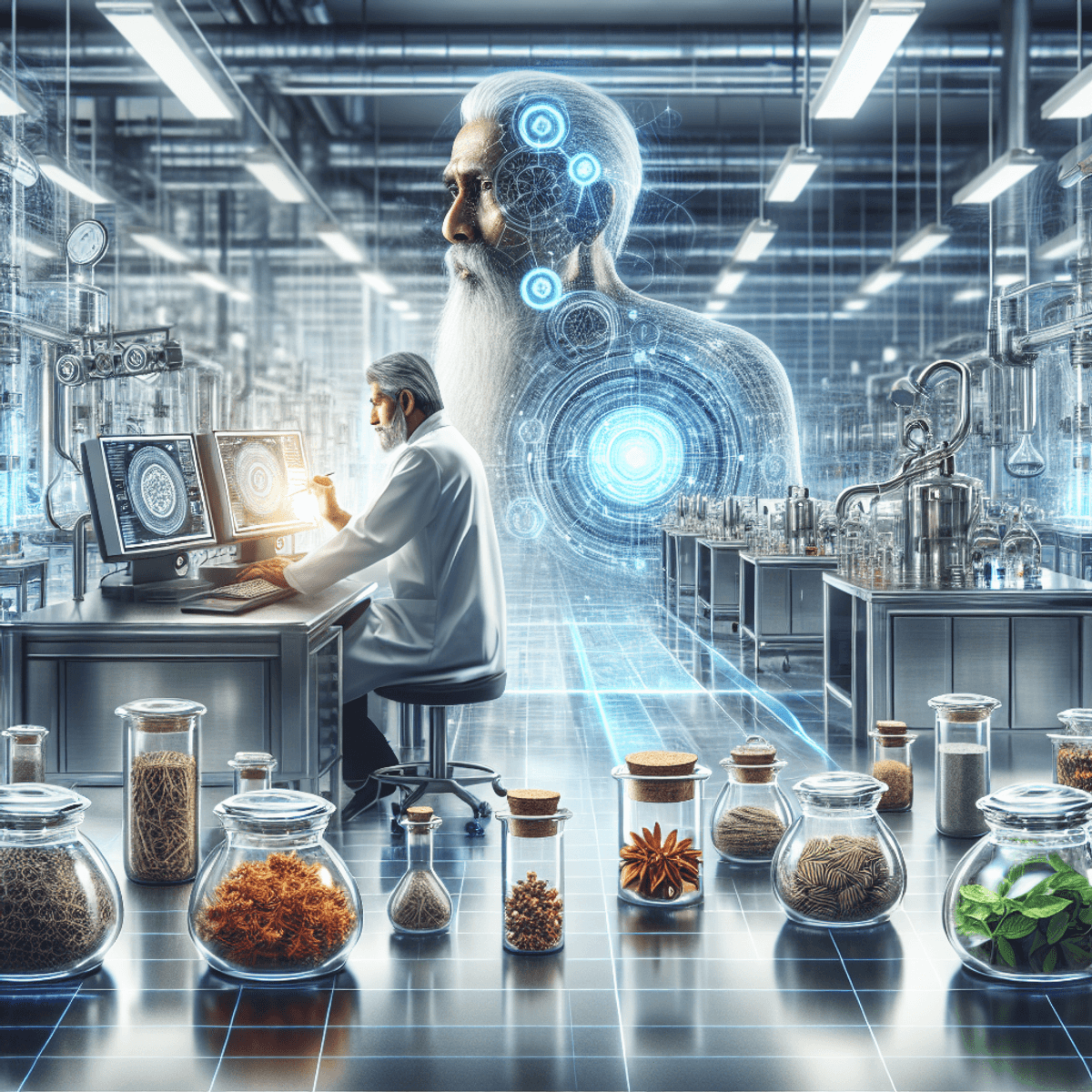
Combining Ancient Wisdom with Modern Science for Future Directions in Age Restoration
Ancient remedies from Ayurveda and other traditions have long promoted youthfulness and vitality. Rasayan therapies, for instance, use specific herbs and formulations to rejuvenate the body. These include:
- Ashwagandha
- Shilajit
- Amalaki
Scientific validation of these traditional practices is ongoing. For example, studies have shown that Ashwagandha can reduce stress and improve energy levels, aligning with its traditional use.
Combining this ancient knowledge with modern chemical formulas and techniques offers promising directions for age restoration. Integrating DAD Ayurveda principles with cutting-edge research creates holistic strategies that leverage the best of both worlds for reversing life’s aging processes.
FAQs (Frequently Asked Questions)
What is age restoration and why is it significant?
Age restoration, or reversing life, refers to the scientific exploration of methods to reverse the aging process. Its significance lies in the combined insights from ancient wisdom, such as Ayurvedic practices, and modern scientific research, which together can lead to innovative strategies for restoring youthfulness at a cellular level.
How does mitochondrial health relate to aging?
Mitochondrial health is crucial for cellular energy production and overall vitality. As we age, mitochondrial dysfunction can contribute to the decline in biological functions, making the maintenance of mitochondrial health an important focus in the quest for age restoration.
What role do epigenetics play in the aging process?
Epigenetics involves changes in gene expression that do not alter the DNA sequence itself. It plays a significant role in aging by impacting epigenomic stability. Interventions aimed at restoring epigenomic integrity may help mitigate the effects of aging.
What are some Ayurvedic approaches to rejuvenation?
Ayurveda offers various principles related to age restoration, notably through Rasayan therapy, which includes specific herbs and formulations designed for rejuvenation. Historical context from texts like the Charak Samhita highlights these ancient practices aimed at promoting youthfulness.
How does modern research approach age restoration?
Contemporary research focuses on balancing anabolic and catabolic processes within the body as part of age restoration strategies. This includes examining how metabolic health can influence cancer prevention and overall longevity.
Can ancient remedies be scientifically validated for age restoration?
Yes, many ancient remedies, particularly those found in Ayurveda and other traditional practices, are being examined for their potential benefits in promoting youthfulness. Scientific validation of these practices helps bridge the gap between ancient knowledge and modern science in age restoration efforts.